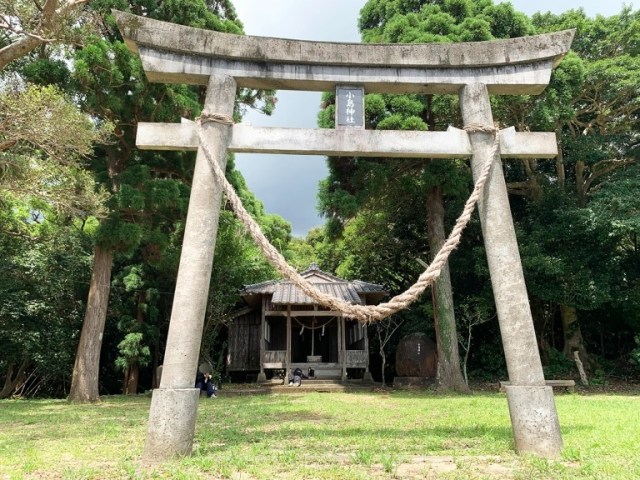
After a month of visiting auspicious sites, Seiji’s luck levels should be maxed out, right?
Traveling around Japan, you’ll sometimes come across places that have earned a reputation as a “power spot” (or pawaa supotto, to use the local pronunciation), places where auspicious energies are said to gather and attach themselves to visitors. Though many Shinto shrines and Buddhist temples are said to be power spots, the label itself isn’t necessarily religious, as forests, mountains, and other sites of unspoiled nature are often called power spots too.
During his recent travels through southwest Japan, our intrepid reporter Seiji Nakazawa visited a whole bunch of power spots. He stopped by Kumamoto Prefecture’s Kusabe Yoshimi, one of Japan’s three great “descending shrines” and partook of its water of eternal youth and longevity. He journeyed to Amano Iwato in Miyazaki Prefecture, the cave which legend says was once occupied by the sun goddess Amaterasu. He spent a whole week on Yakushima, an island so lush with vegetation that the whole place is considered a power spot of sorts.
▼ Yakushima
Add in the places he went to but hasn’t written articles about yet, like Kumamoto’s Kusasenrigahama highlands, and Seiji’s practically spent the past month steeped in power-spot power, which will no doubt be providing him with all sorts of vague but wonderful benefits, right? So to get a sneak peek at his future, after getting back to Tokyo he headed over to Sensoji Temple, in the Asakusa neighborhood.
Like at a lot of temples in Japan, you can draw a paper fortune, called an omikuji, that lets you know whether you’re going to have good luck or bad in the days ahead.
Omikuji have a seven-tier ranking system, which in order from best to worst is:
● Daikichi (very good fortune)
● Kicih (good fortune)
● Shokichi (slightly good fortune blessing)
● Hankichi (half good fortune)
● Suekichi (possible but uncertain fortune)
● Sueshokichi (possible but uncertain slightly good fortune)
● Kyo (bad fortune)
Considering all the power spot legwork he’d been putting in, though, Seiji half-expected a completely new class, which he would call “chokichi” (super good fortune), to come into existence just for him. That would have been a sight to see, but what actually happened turned out to be just as shocking…
…as the fortune Seiji drew was kyo, the absolute worst luck you can have!
▼ 凶 = Kyo
This didn’t make any sense at all! After all those power spot visits, Seiji’s luck levels should be off the charts…and that’s when a raw of hope shined in his otaku mind. You know how in some video games if your score or some other parameter gets higher than the system was designed for, it wraps back around to zero? That must be what’s going on with this bad-luck fortune, Seiji figured.
Thankfully, in addition to an overall ranking, omikuji also have information on specific aspects and categories of your upcoming, so Seiji checked the paper to confirm his I’m-so-lucky-that-it-looks-like-I’m-unlucky theory, and his more detailed fortune said:
“You will be completely at a loss with your empty heart.”
“Your wish will be hard to realize.”
“The sick person is hopeless.”
“The thing you have lost will not be found.”
“The person you are waiting for will not appear.”
“It is a bad time for you to build a new house.”
“It is a bad time for you to take a trip.”
“Both marriage and employment are bad.”
▼ Looks like he should have stopped reading at “kyo.”
Thankfully, temples that offer omikuji also provide a way to ward off an undesirable future. On the grounds, you’ll find cords, bars, or trees designated as spots where you can tie your unwanted fortune, which is said to allow you to leave the bad luck behind when you leave the grounds.
So that’s exactly what Seiji did. We’re keeping our fingers crossed that things work out OK for him, especially since, as his coworkers, we can’t help worrying that we’ll be collateral damage for the “bad employment” part of his kyo omikuji, though maybe that part is just the residual effects of the time he moonwalked across a cursed bridge in Fukui Prefecture for work.
Photos ©SoraNews24
● Want to hear about SoraNews24’s latest articles as soon as they’re published? Follow us on Facebook and Twitter!
[ Read in Japanese ]
Follow Casey on Twitter, where the very first omikuji he ever drew told him “Be careful of fires.”